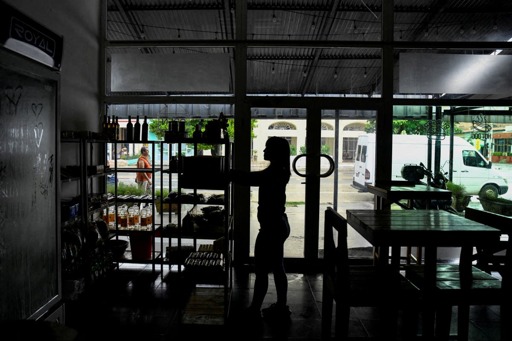Cuba’s biggest blackout in at least two years left millions without power and prompted the government to announce emergency measures
Millions of Cubans were plunged into total darkness as they faced a country-wide blackout after a power plant failed, causing the nation’s electrical grid to disconnect.
Government officials, who had warned about ongoing blackouts in recent days, implemented emergency measures such as suspending classes, shutting down some state-owned workplaces and canceling non-essential services
Prime Minister Manuel Marrero Cruz said in an address on Thursday evening that the government had been “paralyzing” the economy in recent weeks in an attempt to continue providing electricity to citizens.
For weeks, Cuba has suffered a fuel shortage which has impacted the ability to run the power grid. Parts of the country have had no power for 12 hours a day. When power is turned on, demand increases putting a strain on the weak infrastructure.
That is, in part, due to an economic crisis and weather-related problems which have made imports difficult to obtain.
This has made me curious to see what the US State department claimed requisites for lifting sanctions are:
The United States has set specific conditions for lifting sanctions against Cuba, primarily outlined in the Helms-Burton Act. These include legalizing political activities, releasing political prisoners, committing to free and fair elections, granting press freedom, respecting human rights, and allowing labor unions.
Now, it’s debatable if that’s actually the case or just the State Department hiding a retaliatory policy behind rhetoric, but I don’t take issue with any of those, personally.
Leaves out the one catastrophic demand that the US actually cares about
(D) taking appropriate steps to return to United States citizens (and entities which are 50 percent or more beneficially owned by United States citizens) property taken by the Cuban Government from such citizens and entities on or after January 1, 1959, or to provide equitable compensation to such citizens and entities for such property;
“At the beginning of 1959 United States companies owned about 40 percent of the Cuban sugar lands - almost all the cattle ranches - 90 percent of the mines and mineral concessions - 80 percent of the utilities - and practically all the oil industry - and supplied two-thirds of Cuba’s imports. … The symbol of this shortsighted attitude is now on display in a Havana museum. It is a solid gold telephone presented to Batista by the American-owned Cuban telephone company.” - JFK




